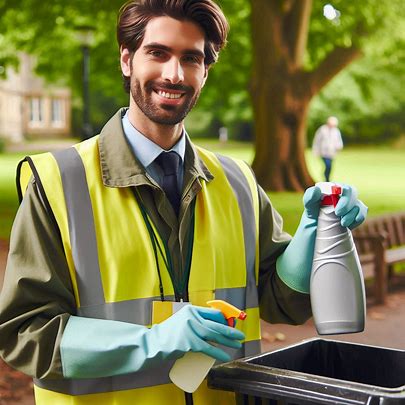
Public spaces collect dirt, grime, and pollutants faster than most areas due to high foot traffic and environmental exposure. Parks, footpaths, playgrounds, and community centers often look weathered and uninviting without regular cleaning. The question is no longer whether these areas need maintenance; it’s how they are being maintained. Should local councils be leading the shift toward eco-friendly methods?
Government involvement can make a big difference. When councils take the lead on adopting sustainable solutions, private contractors and the community often follow suit. One important example of this is concrete cleaning using environmentally friendly techniques. Traditional pressure washing methods can cause harmful runoff, waste thousands of liters of water, and rely on harsh chemicals. That’s where eco-conscious practices become essential, not just to preserve the aesthetic, but to protect ecosystems.
Why Sustainability Matters in Cleaning Public Infrastructure
Pressure cleaning isn’t just about appearances. It’s about health, safety, and environmental impact. Harsh chemical runoff from conventional cleaning can seep into storm drains, contaminating rivers and oceans. Wildlife, plants, and even local drinking water sources can suffer. Sustainable cleaning uses biodegradable agents and efficient water usage to minimize environmental damage. It’s a smarter way to maintain cleanliness without leaving a harmful footprint.
Many eco-friendly methods use less water by combining lower pressure with effective cleaning solutions.
This preserves water, a resource we can’t afford to waste, but also reduces wear on surfaces, prolonging the life of public infrastructure. Cleaner areas also encourage community interaction and can boost tourism in local regions.
What Local Councils Can Do
Councils have the authority and resources to implement real change. By creating policies that require or prioritize eco-friendly pressure cleaning contracts, they set a standard for others to follow. This can include requiring cleaning services to use certified green products, limiting water usage, and disposing of wastewater properly.
They can also incentivize businesses and contractors to adopt these practices. Offering tax breaks or preferred vendor status for those who use green cleaning technology would motivate companies to invest in sustainable solutions. Over time, this can shift industry standards, benefiting communities and the environment alike.
Benefits That Go Beyond the Environment
Green cleaning also helps economically. While initial costs may be slightly higher, they are often offset by long-term savings. Less water usage means lower utility bills. Avoiding harsh chemicals means reduced wear and tear on surfaces, lowering repair and replacement costs. And healthier public spaces mean fewer risks of slips, respiratory irritation, and allergic reactions. This also ties into broader local infrastructure strategies—like maintaining HVAC systems to be energy‑efficient upkeep—to cut costs and reduce emissions.
Public perception matters too. Residents increasingly care about sustainability. When they see councils taking action, it builds trust and encourages more civic participation. People want to live in clean, responsible communities. Seeing eco-friendly methods in action can inspire homeowners and business owners to adopt similar cleaning habits.
Challenges to Consider
No policy shift is without hurdles. Budget constraints, lack of awareness, and resistance from contractors using older methods can all slow progress. But these issues can be addressed through education, grants, and gradual rollouts. Councils don’t need to overhaul everything overnight. Pilot programs and public consultations can help ease the transition and gather community support.
Some rural councils may face challenges finding eco-friendly vendors nearby. In such cases, offering training and support to local contractors can build capacity within the community itself.
Final Thoughts
The move toward eco-friendly pressure cleaning is more than just a trend; it’s a necessary evolution. Local councils play a crucial role in making this shift happen. By setting regulations, educating the public, and supporting sustainable businesses, they help protect the environment and set a new standard for community care.
Clean public spaces reflect pride, responsibility, and foresight. It’s time local councils take the lead and ensure that cleanliness doesn’t come at the cost of the planet. Sustainable cleaning practices are no longer optional—they’re essential for a healthier, greener future.
